
Navigating Life’s Uncertainties
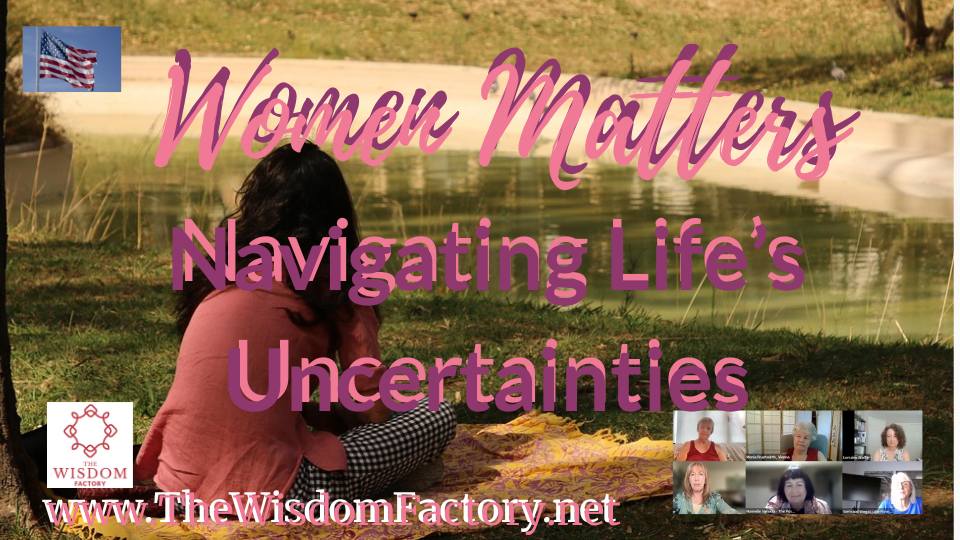
Heidi writes
The Women of Women Matters meet the second time after the summer break. They share what is happening in their personal lives, the challenges and the interesting moments. A wide variety of insights about the present situation, in private and in the world. For more info consult the “Highlights” under the video below.
The conversations took place in September, 2025
### Summary
The video transcript captures a heartfelt and insightful group conversation among women sharing life updates, challenges, and reflections on support, change, and resilience. The dialogue revolves around personal health struggles, transitions such as retirement and new relationships, managing anxiety and nervous system responses, and balancing social energy and self-care. The participants openly discuss navigating cancer diagnoses, the emotional toll of COVID-19, and the difficulties and rewards of maintaining community and connection. There is a strong emphasis on practicing equanimity—remaining calm and present amid life’s uncertainties—and embracing anxiety as a natural part of adaptation. The conversation also touches on the power of music and art to restore hope, and the complexities of working in demanding roles, such as theatre production during times of social unrest. Participants share practical strategies for managing stress, prioritizing mental and physical health, and cultivating intuitive awareness. The dialogue ends with a focus on breathing, taking small steps, and honoring individual pace in facing life’s evolving challenges.
### Highlights
– 🌸 Open sharing about personal health journeys, including cancer and COVID-19 experiences.
– 🤝 Emphasis on genuine support beyond casual conversation—actively asking for and offering help.
– 🌿 Discussion on equanimity and embracing anxiety as part of the nervous system’s natural response to change.
– 🎭 Insight into the demanding work of theatre production amidst social and political unrest.
– 🎶 Reinvigoration through live music and the arts as a source of emotional renewal.
– 🔄 Challenges of retirement transitions and redefining life purpose and community.
– 💬 Reflections on social energy, introversion, and the draining nature of in-person conversations versus texting.
### Key Insights
– 🌱 **Equanimity as a Vital Tool in Navigating Life’s Uncertainties:** The group’s shared experiences underline the Buddhist concept of equanimity—maintaining calmness and acceptance in the face of uncertainty and adversity. This approach helps them avoid being overwhelmed by fear or expectations, focusing instead on the present moment. The practice of equanimity is particularly important when facing serious health issues or life transitions, where outcomes are unknown and uncontrollable.
– 😰 **The Role of Anxiety as a Natural and Necessary Response:** One participant makes a strong case for recognizing anxiety not as something to repress but as an essential nervous system response to novelty and change. By acknowledging anxiety, rather than fighting or denying it, individuals can move through difficult emotional states more effectively. This insight reframes anxiety as a signal of adaptation and survival, helping to normalize and destigmatize it.
– 🧠 **Social Energy Management and the Impact of Communication Modes:** The discussion reveals how in-person conversations, especially in emotionally charged or intense settings, demand significantly more energy than texting or written communication. This difference is attributed to the immediate processing, emotional presence, and sensory stimuli involved in real-time interactions. Understanding one’s energy limits in social contexts is crucial for self-care and sustainable engagement.
– 💔 **The Complexity of Caregiving and Supporting Loved Ones Through Illness:** The narrative about caring for a spouse undergoing cancer treatment highlights the emotional balancing act of offering support without overstepping or enabling dependency. It also emphasizes the importance of family and community support systems to share the burden and enrich resilience. The experience reveals a deep need for communication, presence, and prioritization of what truly matters in difficult times.
– 🎭 **Art and Creativity as Sources of Healing and Resistance:** The testimony about a transformative piano recital and working in theatre amidst social unrest demonstrates the power of art to provide emotional refuge, inspiration, and a sense of continuity. Amid global uncertainties and technological disruptions (like AI affecting creative careers), art remains a vital human anchor and form of expression. The integration of arts into life can be a profound source of meaning and grounding.
– 🔄 **Retirement and Life Transitions as Opportunities and Challenges:** Several participants discuss the emotional and practical complexities of retiring or redefining their careers and identities. The process involves not only logistical steps but also psychological adjustment—letting go of previous roles, embracing new communities, and finding purpose in emerging phases of life. These transitions are framed as times of both loss and renewal.
– 🌬 **The Power of Conscious Breathing and Mindfulness Practices:** The group emphasizes breathing as a foundational tool for managing hypervigilance, nervous system dysregulation, and stress. Conscious breathing is presented as a simple but powerful way to anchor oneself, reduce anxiety, and maintain equanimity. This insight aligns with broader mindfulness traditions and suggests practical daily applications for emotional stability.
### Summary Expansion and Analysis
The video’s rich conversation opens with participants sharing deeply personal updates, including a woman whose husband is undergoing cancer treatments and whose family is adapting to new realities. This sets a tone of vulnerability where the group explores how to offer meaningful support beyond surface-level interactions. The woman’s reflections on balancing caregiving with encouraging independence highlight a nuanced understanding of support dynamics in illness.
Another participant discusses the joys and challenges of retirement, noting a shift from solitary professional work to seeking community and reconnecting with meaningful relationships. Her experience illustrates the psychological process of reintegration after significant life changes, such as divorce and career exit, highlighting the importance of social connection and new creative outlets like community theater.
Christine shares her recent travels and the disruption caused by COVID-19 infection, reflecting on how illness affects even the most joyful experiences and how careful management helps protect vulnerable family members. Her contemplation about fully retiring after not missing work during vacation offers insight into the emotional readiness required for major transitions.
Victoria’s joyful announcement of a new life partner introduces themes of hope and renewal after loss, while also touching on the logistic and emotional complexities of blending lives across countries and cultures. The conversation about “integral” dating sites and spiritual connections adds a layer of modern relational dynamics infused with shared values.
Victoria’s passionate recounting of a powerful piano recital underscores the emotional impact of art, especially when traditional forms of creativity seem under threat from technological and societal shifts. Her comparison with Vladimir Horowitz’s legendary performances frames the recital as a rare beacon of excellence and humility, reminding listeners of art’s timeless role in human experience.
Beatric provides a vivid picture of her intense work in the performing arts, managing complex productions under challenging social conditions, including protests and federal troop interventions near rehearsal sites. Her account reveals how creative professionals navigate external turmoil while maintaining dedication to their craft, embodying resilience and adaptability.
The group then delves into psychological themes, discussing the importance of welcoming anxiety and nervous system activation as natural reactions to life’s novelty. This reframing supports a healthier relationship with stress and uncertainty, encouraging acceptance rather than avoidance. The conversation about openness to change ties into personality traits research, suggesting that flexibility and low attachment to outcomes promote well-being.
The dialogue touches on practical coping strategies such as prioritizing, taking small steps, and focusing on one thing at a time as effective ways to manage overwhelming demands. The importance of family and social support emerges repeatedly as a vital resource for emotional survival and joy.
Towards the end, members reflect on the challenges of social energy management, explaining why in-person interactions can feel draining due to the immediacy and emotional intensity involved. This recognition supports the need for self-awareness and pacing in social engagements, validating different communication preferences.
Finally, the group highlights mindfulness practices, especially conscious breathing, as essential tools to counteract hypervigilance and maintain calm. Sharing resources like instructional videos demonstrates a commitment to practical support and collective learning.
Overall, the video transcript offers a rich tapestry of human experience—pain and joy, challenge and hope—woven together by a community dedicated to mutual support, personal growth, and mindful presence.
### Key Takeaways for Broader Application
– Equanimity and acceptance are crucial psychological tools for navigating illness, loss, and uncertainty.
– Anxiety can be reframed as a functional response, promoting healthier coping strategies.
– Managing social energy is important for introverts or those sensitive to emotional stimuli.
– Creative and artistic engagement provides emotional sustenance and resilience.
– Life transitions require practical and emotional preparation; community support eases the process.
– Mindfulness and breathing techniques are accessible and effective methods for emotional regulation.
– Open communication about needs and challenges fosters authentic support within communities.
00:00:00 – 00:01:40
I I >> Okay, I I just put on recording in progress. Okay, so this is women matters and uh today I’m the host because Heidi will leave in 30 minutes and one of the topics I’m fine so far. One of the topics that really strikes me is uh how can we support each other not just chatting but really ask for support. So, uh, yeah, that’s what I was wondering how we could support Hani or how we can support Gertrude in her situation. And I’m passing on to Gatra. >> Yeah, thank you. And um, I missed the
00:00:49 – 00:02:46
last call. I don’t know why, but um, yeah, I was not clear that it was already starting after your summer break. Um starting with my husband, he had six um a sequence of six treat six treatments every four weeks. And they did a CT last week or the Yeah, something like that. And they said that everything is better but not good yet. So, and his energy is um a lot better and he’s going out and doing things. He even does does some photographing. So, um yeah, it’s it’s kind of Yeah. How can I say that?
00:01:56 – 00:04:03
Where is this? So to further support him but not um hold him back to to come back to to kind of normal living and um yeah and I’m I’m in the process of looking how can I uh earn more money and have more the the possibility to to do what he did mostly like I mean I was in a safety net somehow and now I want to to yeah provide that. So it looks like he could go in a early retirement but is not allowed to work more than three hours per day and things like that. So there are some limitations
00:03:02 – 00:04:44
but I’m I’m I’m good. I’m I’m pretty happy about this. So I would have liked it’s gone but it’s not. So the lumps are already all still there. So uh yeah and um I’m working quite a bit with um instant change and I want to do that more as a business because um I don’t want to go back to companies and all the the stress that comes with it. I’m I’m more a one-on-one person right now. Yeah. And it’s good to see all of you and um I pass on to Loren Loren.
00:04:01 – 00:05:47
Uh good morning. Um Gertrred, I hadn’t realized you were dealing with all that you mentioned this morning. I sounds like you have a lot of strength and I hope the path forward gets easier. Um I uh I really enjoyed our meeting last month. It was it was just the three of us but very very interesting. Um I think my focus now is um really is community. I you know I’ve had a very solitary existence in some ways because uh as a psychologist you know I work mostly one-on-one and uh it’s easy to kind of feel
00:04:54 – 00:06:35
disconnected with a sense of community. So I’m that’s kind of my focus now. I spent last week visiting friends and my stepdaughter and um her daughter uh and it was uh it was really enriching. I mean I traveled you know into the local mountains and and then to LA and then back again and I really enjoyed it and I am uh getting back to a longtime interest in theater. We have uh a lot of lovely little uh community theaters around and I’ve been making the rounds. Um and uh I started in theater
00:05:45 – 00:07:21
but realized I was not really an artist. So um yeah. So that’s that’s been kind of interesting. I I think finally my nervous system and my soul are calming down and feeling more comfortable in my surrounds. Um, and that feels good. And now I feel like I’m reaching out. Hopefully going to see some friends at dinner next weekend, which will be fun. Um, yeah. So, it’s it’s kind of like uh um a time to sort of, you know, settle into my new life in a way, retired, you know, uh the final stages of
00:06:32 – 00:08:10
adapting to a divorce and um kind of reintegrating with those people who really mean something to me. So, that part’s been good. and I defer to Christine whom I haven’t seen in a while. Good good morning. I am Christine in Carlsbad, California. I’m glad to be here this morning. Just came back from a pretty long visit east about two and a half weeks or so. And uh um it was wonderful. Had a great time. The first part of the trip, the first 10 days, I uh was by myself and did all the things I wanted to do,
00:07:23 – 00:08:37
New York City, plays, concerts, park, museums, all the kind of stuff that I like to do. And had a good time being by myself because it was easy to make decisions. And uh also went to a high school reunion which was fantastic. had a wonderful time with old friends and then spent some time on the Jersey Shore where I haven’t been since high school. So, I wanted to go down there uh again and that was really fun. Um got my picture taken in front of the Stone Pony and for those of you who are aware that was where Bruce
00:08:01 – 00:09:17
Springsteen first became famous was at the Stone Pony in Asbury Park. Um, it was a lot of fun. And then left New Jersey, went to Massachusetts and met up with Tom and we have friends and family up in Massachusetts. So, spent about 10 days with my sister um at her house and then, you know, various uh things. We went to the last game of the Red Sox regular season which was really fun. Um, only thing is that Tom caught COVID and of course you never know where you got it from, but we assume he got it on the
00:08:38 – 00:09:53
plane. So, he got sick first and then about a day or so later I started having symptoms and then I tested positive. So, it definitely put a crimp on the last uh few days of the vacation because we had to isolate and uh both myself and my sister came down with it and then some people that we had seen earlier in the week unfortunately came down with it too. Some people didn’t though. So, that’s that’s kind of interesting. Um out of all the people we saw, only a few people ended up um getting it. So, uh,
00:09:17 – 00:10:29
it it’s been like a cold. You can maybe still hear the congestion. So, I feel pretty good. I’m not needing to take any medicine for symptoms at this point. I’m sleeping better. It’s, you know, just waiting for the last, it’s like a cold, waiting for the last remnants uh to go away. And I just checked my calendar. It says this is the 41st week of the of the year. So that leaves 11 weeks left uh before I retire, before the end of the year. And I still waffle back and forth. Is this what I want to do? Is there any
00:09:52 – 00:11:04
portion of me that wants to stay doing uh you know, at a smaller part? And you know, I realized after this long vacation, I really didn’t miss working. And I took that as a good sign. of course you’re on vacation and you know I was doing all these fun things. Um but I didn’t really say oh I can’t wait to get back to work. So I’m going to use that as a sign that I am ready to uh to exit uh the practice of psychology. But lot to do. I don’t know. I’ll I’ll talk to you later about all any steps
00:10:29 – 00:11:41
you had to do. You got to notify insurance company insurance companies. I’m supposed to notify the board of psychology. Blah blah blah blah blah. patients have to be notified. So, um yeah, it’ll be an interesting few months, but uh yeah, I’m looking forward to it. I’m looking forward to January 1st. And uh otherwise, we’re we’re doing good. Um Tom tested negative today for COVID, so he’s done. He doesn’t have to isolate or wear a mask anymore. Um we’ve been careful cuz our daughter lives with
00:11:04 – 00:12:25
us. Uh, but she’s good at staying separate. Um, and she hasn’t gotten sick. So, that’s a good sign that that we’ve been careful enough. Um, and maybe I will pet test negative tomorrow or the next day, but certainly by Saturday. Okay. I will pass to Victoria. >> Can I and I first go because I have to go later. Mona is taking my role today. As far as I’ve known, I’ve understood we have sort of lifech changing moments which will develop in the next few months so far. And that’s my um check-in also. I as I
00:11:45 – 00:13:11
said last time I found a life partner and he will come first for four weeks and then if he decides to want to stay here then he has to ask for leaving work and it takes still some some months but uh it sounds and it feels like very very very good. So I’m really happy about that. >> Yeah, you look like that. Yeah. >> What is his name? What is his name? >> Marcus. Marcus. Mark us. >> Mark plus us. So for me in many ways it’s a prolongation of mark because we have the
00:12:28 – 00:13:58
same let’s say goal u in the world to what our existence should be in the world to reunite feminine and masculine energies and see what we can do to create peace and uh I’m really really happy it took seven years you know since Mark died. So I’m really happy that this is happening now. Now I have in a short while I have to go to the this the place here or trickle because when you have uh when you are resident in in Italy, you should have changed your driver’s license within three
00:13:12 – 00:14:26
months. I’m living here about 35 years. I’ve never done that. And I have uh um uh now a a car with a Italian license plate and I have heard they start to control and give you fines. So I have to change it now and I have to go because there is a doctor who sees if I can see. All right. So and he’s only Monday and always when we are doing our uh our meetings. So I said okay today I come and uh leave you a little earlier but Mona will be a wonderful substitute. She is the original founder of this
00:13:50 – 00:14:58
conversation. So I think you will remember so far to me uh and now I give over to whom you wanted to Christine Victoria. Thank you, Christine. Um, Heidi, I I don’t know anything about this. I I guess I I missed last the last meeting. So, can you give a little more information because I don’t think I can wait in the suspense. >> You cannot wait. I mean, I cannot wait. And even you >> I don’t know anything about this. So, congratulations. But I’d love to hear I’ll give up my my check-in for you so
00:14:31 – 00:15:53
we can get more information on this fabulous development. Yeah, it’s about uh two months that I first knew him online and then he came about a month. >> Did she freeze? >> Very long weekend and since then we are how to he has had to ask a month’s uh off of work. So that seems to have happened today that he got it and then probably in November he will come for a month then then the decision will be be on but I’m really confident that he has to do a big step because he’s he is English he’s
00:15:14 – 00:16:26
from England and um you know has all family there so it is a big step he doesn’t know Italian so we will see if he has the courage to do that. >> Did you meet is he did you meet him through the integral community? >> Um through the integral x integral dating site. >> Yeah, >> the ex integral dating site. Is that ex people that are no longer integral or they’re no longer >> No, it is it’s merged with a spiritual singles dating site. So >> spiritual singles. I should check that
00:15:51 – 00:17:07
out. Yeah. >> Yeah. Is so is he living in England now? That’s where he lives. >> He’s living in England. Yeah. Yeah. Yeah. Yeah. >> And what is his profession? >> He is working in the business of his brother in all about airplane and not airplanes but all this things you need for flying and they provide that uh is an um how do you say um an enterprise of of service. let’s say they sell I don’t know headphones and instruments for flying and all everything he says except the airplanes
00:16:28 – 00:17:38
they are selling so and he has an important role there with uh with the market with preparing everything and so on for the uh so he cannot just go away from one day to the other because it’s yeah >> can he do that from Italy as well >> remotely can he can’t work remotely >> how old is he if we can ask. >> He’s 30. >> He’s younger than me quite a bit. >> No, not in the 30s, but in the early 60s, let’s say. So >> Oh, well, that’s not much of a
00:17:05 – 00:18:16
difference. And men die younger. So, uh, that’s always the way to go. Always get a younger man if you can. >> Yeah. Yeah. I I ordered the same this thing exactly from the universe and it came as I ordered. I said 10 years younger, only nine years younger, but that’s okay. >> That’s perfect. Well, congratulations. That’s really exciting. >> Thank you. And cross the fingers that everything will work out, please. >> How are you, Victoria? A little bit. I still have eight minutes.
00:17:42 – 00:18:57
>> Oh, okay. In eight minutes. Okay. Um uh well let’s see. Um in my therap group therapy it’s a high and a low for the week. Um the the I guess the the the most exciting thing that happened recently is um I I my faith in music has been restored. Um, I heard a piano recital on Saturday night that was literally I wrote to a friend afterwards. The best um musical performance I’ve heard in in like half a century. Um, so that was just thrilling for me. It was a pianist I’ve never ever
00:18:21 – 00:19:24
heard of. I don’t know anything about him because I’m not f I for years I haven’t followed the the music world at all because I I’m very disillusioned with the way things have gone in terms of well you know Heidi you’re you’re a fellow musician. Um and this is a young pianist named Steven Lynn who’s Taiwanese but born in America. I I literally know nothing knew nothing about him until he I sat down and got the concert program. I was invited to the concert. So, it wasn’t my, you know,
00:18:51 – 00:20:00
I I wasn’t looking into getting tickets. Um, just phenomenal playing. If if any of you know remember the great Vladimir Horovitz, this was um I said to him, if I said, if you had sat down at the piano for the encore and played Troy Marai by Robert Schumann, I would have um just jumped out of my skin knowing that you were an actual reincarnation of Horovitz. Uh because Vladimir Horvitz that was that was his signature encore after every recital and um it still get I’m getting chills just talking about it
00:19:26 – 00:20:35
was um anyway I won’t talk too much but but that was that was huge for me because um I’ve been really disillusioned with everything lately about the world um especially with the the rise of um AI and how um careers are just dropping by the wayside um constantly on a daily basis and creativity is going out the window and intelligence and education. Anyway, I won’t be too bleak, but um but this was really a big thing for me because I feel like just the fact that there’s like one one person out there who is carrying the
00:20:01 – 00:21:10
torch for music the way I believe it should be um approached and performed and he’s very humble. He’s very young. I didn’t even know how old he is. But anyway, that was really thrilling. Um, and I on that that note will um and I’m excited because on Thursday I’m flying up to Portland to see Dracula and um I’m going to pass over to Mrs. Dracula Beatric. >> Um, Victoria, what was the venue for the recital? >> Oh, it was at um it was at UCSD. Uh, which is why nobody knows about it. Um,
00:20:36 – 00:21:38
because I’m an alumni there, I get invited to to all the music department functions. And this is a a a series that was started a number of years ago by it’s very Chinese. It’s um the whole audience usually the the hall is empty because nobody wants to hear experimental music at UCSD. Um, usually there are like like five people in the audience. I’m not kidding. This concert was packed and and lots of children and I would say 99% of the people in the audience were Chinese. So, it’s a big um
00:21:07 – 00:22:07
the people who paid for the concert are from Taiwan. The professor in the department who um sort of pushes the series because he’s the person in the department, but he doesn’t have the money. So, these people have the money, he has the job. And so, that’s how this pianist came. But um so I was one of the few non-Chinese people, but Steven Lynn, Steven with a V, not a P. L I N. Um I don’t know if he’s recorded, but he’s absolutely amazing. Anyway, thank you. Over to Mrs. Dracula.
00:21:40 – 00:22:45
Um hello everybody. It’s been a long time. Um I it’s it’s a rare opportunity when I have a Monday morning available to uh join these days. I’m often going to work. Um I’m either already at work or I’m on my way. Um but I have today off because we’re um this week is our tech week. So I go to work tomorrow and then I’m working through Sunday because we have opening night is Friday. And um so it’s a big it’s a big week. It’s always the hardest week of a show. Um uh
00:22:13 – 00:23:37
yeah, we’re working on Dracula, the ballet. Um there’s flying. There’s 18 wives and then he kidnaps a village girl and then he kidnaps a second village girl cuz I guess he wanted an even 20. Um, and then the village people rescue her, the second one. And that’s the story complete with lots of ballerinas and white and a whole act that’s taking place in a village that has nothing to do with anything, but you have to have a village act in a in a semiclassical ballet. So, um, uh, so that’s what I’m working on. Um,
00:22:55 – 00:24:11
I’m in Portland. It’s I don’t know how much people are reading news about what’s going on over here. Um, it’s there was nothing going on over here, which is the truth. And then Trump decided that it was war ravaged and that something needed to happen and uh sent ordered the federal troops to come in um to defend the the immigration building, the ICE building, which by the way I work two blocks from during rehearsal weeks. Um so I’ve been very nearby seeing what’s going on. Um, and
00:23:32 – 00:24:37
then Oregon uh won a lawsuit saying that it wasn’t necessary and then Trump said, “Well, all right.” and sent the California troops in. So, that’s where we are right now. Um, Saturday was our final run through rehearsal uh before we go to the theater. And um but we found out that there were going to be protests that day and so we had to at the last minute change location for a rehearsal to the warehouse. And that was a big I mean we have an amazing team. Everyone made it happen, but it was kind
00:24:06 – 00:25:10
of a stressful end of the week to to have to shift everything. And and it was good that we did because in the middle of rehearsal, our rehearsal director, you know, pulled up a news clip and apparently the there was tear gas and rubber bullets and all kinds of things happening. So if we had been I mean we were you know we would have been in the building two blocks away doing our rehearsal but you know it would have been just around the corner. Um, and definitely as far as I can tell, I think definitely instigated by
00:24:38 – 00:25:49
by the federal like by the troop people like not I don’t think I I the the protests here the Portland I don’t know I who knows but I’m my my gut feeling says that there was it was just peaceful and they were trying to disperse the crowds and then they caused mayhem, you know, and of course now there’s footage that makes it look like we are war ravaged, which is still not true. Um, so anyway, that’s what’s going on here. It’s, you know, it’s hard to know what to do or to just kind of keep going
00:25:13 – 00:26:30
and like, oh, I’m going to now work on this ballet about Dracula. Keep chugging along. Um, yeah. So, that’s what’s going on here. Um, what else is going on? I’m going to work on LoboM next and then straight into Nutcracker. I have no days off uh pretty much from now until Christmas. I’ll have like one day off a week, but um and two days off with the ballet, but um no, I usually have a little break between shows and I took a second contract, so I’m just going to go go go.
00:25:51 – 00:27:01
Um yeah, but happy to be here. Happy to see all your faces. I feel like there’s probably more interesting updates to give, but I can’t think of them right now. So, well, >> I also thank you to be here and I’m going Okay, >> all the best. I hope you can see. >> Hope you can find your way to the dark for good time. >> Why is your mother calling you Mrs. Dracula? Is this your role in the ballet or what? >> Oh, no. No. I’m I’m I’m the assistant stage manager still. That’s still my
00:26:27 – 00:27:22
job. >> Yeah. Um No, I actually don’t. Well, we’ll see when we get to the tech rehearsals. Right now, it feels like I don’t have a whole lot to do um on this show. I mean, watch and make sure everything is operating. It’s complex and I, you know, my my job is to be present and make sure everything’s running smoothly, but I don’t have any exciting. >> But in my own defense, >> exciting things to do this time. >> In my own defense, she did send me a
00:26:53 – 00:28:05
photo of herself in Dracula’s carriage. >> I did. >> So, I thought in that photo she Mrs. Dracula. So, that’s why >> I might be one of the next victims. Who knows? >> And did you do any of the choreography? No. Okay. It was a It was a already established play or ballet. Yeah. >> What is your job there? >> Uh, assistant stage manager. So, I am I make sure all the props are in the right place. I make sure that everything is set up between each act. I make sure the
00:27:29 – 00:28:30
dancers are safe and if anything weird happens on stage, I make sure that, you know, it gets communicated to the people that need to know. And um yeah, mostly that and you know and I help the crew I mean the big part of tech week that’s that’s when it’s the the most work I think is you know the we’ve been working on this ballet for the last month and a half and so we all know it really well. I mean even from a technical side. Um, but when we get to the theater, the crew’s never, you know,
00:28:00 – 00:28:59
well, actually this is a show they did three years ago, so they might, some of them might know it, but um, usually you come in and the crew has no context for anything. So, you have to explain everything to them and say, “Okay, this, you know, this this carriage is going to be coming out of the wings really fast. You’re going to have to catch it, you know, and this is what this object is.” And, you know, all that kind of stuff to teach them the show so that they can run it run in the background.
00:28:29 – 00:30:20
Well, from the topics I heard is uh how do we manage unexpected uh one of the topics like COVID or changing going into retirement. This is expected but still um so how do we manage to keep our equilibrium our uh what would you call it in Buddhist in Buddhist terms Victoria will know so just being relaxed and uh >> equinimity >> equinimity thank you ghetto Yeah. So, how do we continue with equinimity in the face of unexpected challenges? >> I’d like to make a pitch for anxiety.
00:29:38 – 00:31:03
>> Anxiety. >> Yes. I’d like to make a pitch for it. to be present with. I mean, your nervous system ratchets up with novelty. >> Doesn’t have to be, you know, a saber-tooth tiger running after you. So with change comes that fight or flight and to sort of move into a space where you accept that and there’ll be some arousal and there may be some anxiety but it’s all part of the process. And so we don’t try to tamp it down but we let it move through us. Acknowledge what it
00:30:19 – 00:31:34
is and then move forward. So we’re not always trying to push it away. Um, and we’re not always trying to rise above it, but to acknowledge it as part of this is your nervous system taking care of you in a um new situation. So, that’s my pitch. >> That’s what and that’s what I’ve been sort of shaping for myself because I went through tons of changes in the last couple of years, but this year was a big one. Uh, so you know, that’s that’s kind of how one of the ways that I move
00:30:59 – 00:32:19
through it. I’m curious about whether you what you all think, >> Christine. >> Um, it it made me think of openness, how open and that’s a trait, one of the big five personality traits is openness. And um I think if you embrace or at least tolerate maybe not embrace but tolerate >> change um you’re better off and I guess for myself just tried not to have a lot of expectations. So that goes back to Gertroud’s equinimity you know be in the process don’t hang on too heavily to the
00:31:39 – 00:32:58
outcome. It’s got to it’s got to come out this way. Um unless you’re baking bread and then it’s okay to hold on to the outcome. I like that. >> But I don’t know. Openness. Yeah. >> Get help. >> I I’m I’m just thinking of the last six months. Um >> there I mean it was like heart attack. No, not heart attack, but something’s wrong. So, let’s see that. And then there was this water in the lung. Okay, not anymore. But there has to be a reason. Okay, this
00:32:20 – 00:33:59
is a inflammation uh and we can treat it and he’ll come home and then No. So it was kind of like, yeah, relax. It’s It’s better now. And then the next one and then the next one and then the next one and and then all of a sudden it was cancer. So um yeah, I I I don’t know. I think presents I would say present. So, not to um complain about the past or whatever or why didn’t they find it earlier or blah blah blah blah blah and he shouldn’t have gone to that hospital because they
00:33:14 – 00:34:58
don’t treat cancer and you know all this um and not going so like Christine said no not going too far into the future and and and project any outcome. So it was more like okay we’ll deal with that today and now you know I was sitting in the in the bus my my daughter was with me so from the hospital and we expected him to come home on Tuesday that’s what the doctor said and then we just left him and were in the bus and then he said just the doctor came and told me the diagnosis and I had to really like
00:34:05 – 00:35:42
keep my composure in the in the bus >> and she slept over. She wanted to go back but then she said no I stay. And I realized it was like, yeah, just don’t go anywhere, just be present. So there was my survival kit, so to say. And um you don’t know if it’s worse, you don’t know if it’s better, you don’t so yeah, even with the CT uh not to go into expectations and now like it’s better but not good yet. And and I did a test there was something with electrodes and things like that. So
00:35:00 – 00:36:47
they they said, “Okay, my I have too much um heavy metal in my system. I have to get rid of that.” And so there was this map where it’s normal and the red thing goes out. And then he looked at it. he knew of the cancer and it was like coping mechanisms and equinimity and so it was really right in the normal and not at the edge but really in I said I didn’t expect that so so I I feel so when people ask me how are you and said I’m fine I’m I’m with myself and so I’m just yeah he had to
00:35:54 – 00:37:31
support him and I think that yeah that was my my way of dealing with it and obviously my body said yeah that’s that’s a good way and yeah and to and to not wait for anything like He had a hard time to tell me that he loves me. I mean, he does, but I’m like to hear it sometimes. And and during that time, uh, especially when he was in the hospital, I mean, he he said that more often than the last 20 years, I I would say. So, it’s really like what’s really important? What’s
00:36:45 – 00:38:21
really important at the moment? And I realized I didn’t I didn’t need my books. I didn’t need anything. So it was like that’s it. So if you if you just take all my stuff out of the the flat, it’s okay. Yeah. So it’s Yeah. To to really know what’s important and go with it and and not and also my family was so great. I mean they were here last week again and just yeah to relish relish is that the right word cherish um relationships and yeah so that’s that’s my two cents about
00:37:36 – 00:39:14
this. Well, I guess a family is Yeah, it’s just great to have it around. And as my young our younger daughter moved to Corinthia, so now we have established another WhatsApp group. And uh we have they have a special food there. It’s called uh Kas Noodle. So, it’s a kind of cheese uh dumpling. And that’s what I called this WhatsApp group because I was so fed up with my my husband writing her. She didn’t want to be in the family group because everybody writes stuff there and it’s just too too
00:38:25 – 00:40:00
much sometimes uh how to uh put your plants safe in the winter and things like that. And so she decided another group was fine. So my husband just looked at it and said, “Well, I’m now in about five WhatsApp groups. How did that happen?” Yeah. But that’s how we communicate. It’s I find it easier to text than to talk to people. As I uh said, we met the Swiss integral people and we talked for over 3 hours and I was exhausted afterwards. Although it was interesting and and really nice talking,
00:39:12 – 00:40:53
but uh it takes a lot of energy out of me when I talk. So why is that? Do you have any suggestions? Uh Christine Doran, why is talking more using more energy than texting? >> Because it’s real. But I But you didn’t ask. >> No, go ahead. No, go ahead. >> Um certainly being present with people. Um there are so many things to pay attention to and and so many things to think and feel. It’s it’s very very stim much more stimulating I think um especially the I think the um
00:40:09 – 00:41:32
emotional pieces um and potentially more triggering I guess. But uh you know some of that could have been excitement as well. I I mean good stimulation and that will tire you too >> even if it feels beneficial. Um is it’s an interesting observation. Uh you know probably you’re the best one to sort through at which points you could feel your energy draining. Um, and at which points, you know, you could feel yourself increasing in energy. I mean, I’m sure you can unpack that, but it’s a really interesting
00:40:51 – 00:42:00
point you make. I have no answers, by the way, just reflections. >> I I think you hit it right on the head. Nail on the head, Lorraine. Um, there’s a lot of extra stimulus. Your brain is working harder. there’s more to pay attention to and it’s more immediate texting. You can reflect and think a few minutes about what you’re going to put in the text and change it or whatever. But, you know, with people you’re, you know, it’s it’s instantaneous. It’s more >> Yeah. In particular, when they say
00:41:25 – 00:42:56
something totally unexpected, >> uh, which you never thought. I mean, I always feel that the Swiss are very conservative and no, she uh she is uh she calls it she doesn’t call it nudist, she calls it naturalist. So, she doesn’t mind uh being in the nude when swimming or or and uh yeah, and she has a lot of experience with drugs, so good ones. And uh I never thought I knew that the Germans, the Eastern Germans, they use a lot of that to stimulate there and expand their consciousness,
00:42:11 – 00:43:41
but I never thought that the Swiss So this is my um cliche of the Swiss. So that’s not true. And that maybe that was quite something to unravel as well. Yeah. Did you say lots of experience with frogs? >> No, drugs. >> Drugs. Substances. Frogs is nice, too. >> Not substances. Substances. >> Yeah. Samuel Bitma was a Swiss. >> Right. Right. Right. Right. Yeah. I I was rather amazed when I read him the first time. and said, “My goodness, look at the Swiss.”
00:43:00 – 00:44:37
So, it really depends on the people, but uh it was quite And of course, we talked about our age and our illnesses and they went through some of quite a couple of challenging times as well. So, maybe that moved me emotionally as well because >> Yeah. It’s it depends on yeah it it depends on so many things how you are present and uh of course it was in a cafe and it was we had to talk a little louder so we can make then we moved to another one where it was totally quiet and then they talked about before that they didn’t
00:43:49 – 00:45:09
talk about substances it was just after when we were in a very quiet corner just by ourselves, nobody else there. And then they finally, but they never named it. They just used abbreviations for So that was quite it was quite fun as well. Yeah. To see how people go into uneasy territory. They talk to us. Well, we haven’t met for a couple of years now, but still they were rather open and we were open as well. So it was just Yeah, it was a nice exchange, but I wouldn’t want it every day. So that would be just too
00:44:29 – 00:45:57
much. >> Yeah, there’s intensity as well. Like if I mean I had one daughter with her with her daughter and my sister and and brother-in-law here. It was great and we really had a wonderful time. But when they left it was like relaxing. It was not like it was bad and that’s why I have to recover. It’s more like to let that sink in and and come back to your normal. >> Yeah. It’s it’s particular when you are like I am and my husband, we’re just by ourselves. And when the grandchildren
00:45:13 – 00:46:36
come, the two of them and the dog, um, they have so much energy and I I just watching them, I’m amazed and my daughter as well, but uh, you may not know it, of course you don’t. I have been going to a fitness center for two months now. build up muscles and my intention was that I can stand up more easily. >> Mhm. >> Well, I still can’t stand up, but I have so much more energy now. It’s it’s amazing even mentally because uh this is a fitness center where you have to lots
00:45:55 – 00:47:18
of different uh technical equipment and you have to you have a list how you need it, how high you need it and how where your your feet should be. So you really have to mentally I’m mentally challenged as well and but my daughter made me do it and once a week we go we drive by the car and the other the other time I go twice a week and the other time I um go by public transportation which takes about 20 minutes longer but it’s okay. So, I’m glad to get out of the house and to have a reason and not just
00:46:37 – 00:48:04
to shop because usually I just go out shopping groceries. Anyway, it’s uh something that really gave me new a new way of life because now twice a week I’m rather busy. I was wondering about be trees. Um, what are your immediate challenges now in Portland? Apart from tear gasing and I wanted to hear your generational perspective. You’re between Gen Z and and millennials. Is that right? You’re kind of sandwiched in between. Uh, no. I think I’m a millennial. Millennial. Okay. >> Officially
00:47:21 – 00:48:40
younger millennial perspective on change and adapting. What is monial? >> Millennial. >> Millennial or a millennial. I know. Yeah. >> Um I don’t know. I mean, I was just going to say breathe. Uh and but really I sometimes that’s that’s all you can do is breathe. Um yeah. I don’t know. I’ve been learning more about the nervous system, too. I’ve been learning more about also about um neurode divergence and um the different ways that people are affected differently by things and
00:48:04 – 00:49:38
energetically and all of that. Um and I think it’s some of that I think is very it’s very you know depends on who you are and what you’re affected by and what are the things that ground you or regulate you. Um, I do feel like I’m a little bit more I don’t know, even if I’m not trying to pay attention to what’s going on, I feel like I can feel it in the world. Um, which is annoying. Be really nice to be able to compartmentalize or uh not not uh take it in. Um, but I think I’m my I’m very porous in terms of
00:48:52 – 00:49:59
taking on what’s going on out there or what’s going on with other people or so >> becoming more empathic. >> Um, yes. I I would like to be less empathic actually. >> I think I could be a little bit more productive. No, I mean I don’t I don’t really mean that like but I but I just mean more I it’d be nice to have to be less um sensitive sometimes to to cuz it really things can really just throw me off and then it’s very hard to get anything done and it’s
00:49:26 – 00:50:37
especially hard when there’s a lot to do. Um there’s a lot to do right now. There’s a lot of work but there’s there’s also uh we have some house projects that are happening in the next uh week or two. visitors, you know, it uh all these shows um you know that I don’t have any time between to to take breaks. Um and um it’s it’s a lot. So I think that’s that’s mostly what I’m what I’m trying to, you know, breathe through. I don’t know. And prioritize, right? Like I
00:50:01 – 00:51:26
think it’s helpful to say okay what what absolutely needs to happen right now and what can I let go of for later or altogether and um yeah and and also it feels good to get things done. Sometimes you just have to start something and it gives you momentum for the other things. I don’t know. I think that the most immediate thing that I’ve been struggling with is just doing getting all the things done that I need to get done. And the checklists are endless. The to-do lists are endless both at work and not at work.
00:50:44 – 00:51:45
Um, another contextual piece is I I went to Burning Man again this year and >> um and it’s only it’s only been a month since we got back, but it’s there’s still there are still things that have not been unpacked or cleaned or taken care of, you know, >> and that’s on top of work and on top of other things. And so it’s just it takes a while to >> get back into gear of of regular life. >> So yeah. Oh, that I didn’t know a burning man. That’s maybe you could tell
00:51:14 – 00:52:31
us more about it next time. Uh I was wondering for our check out maybe uh each of us could say what are my priorities right now because you mentioned priorities but who will start? I’ll I’ll go because I have a I have a patient at 10, so I have to um sign off pretty soon. Um well, my my most immediate priorities is is to get back into a routine after a vacation. You know, it takes a while uh as Beatatric just so nicely explained. You know, it doesn’t happen overnight. It takes a while to get your back into
00:51:56 – 00:53:15
your routine. Um so that’s my immediate priority. I guess long-term priority. like Mona what what you said you know try to make adaptations and be open to transformations that those are my priorities. >> Thank you. >> Who would like to go next? >> Um I’ll go. Uh something just occurred to me when you were talking. I um one of my priorities uh a new one lately is when I get a vision in my head because I see things. I’m very intuitive so I’m really visual and I I will see an image
00:52:42 – 00:53:48
or I’ll have a conversation in my head and I didn’t used to take those things seriously. I just thought they were flights of fancy. Now I’m taking more seriously that these may be intuitions. um especially as I read a little more in noetic sciences and all the rest of that. So I’m taking that more seriously and when I get a vision like having dinner with friends, something simple. Now I’ve decided now I’m going to do it. I have to take those visions seriously because it’s like messages from the
00:53:15 – 00:54:56
inside of me. This is something I really want to do, need to do, you know, uh whatever. So, I I think that’s one of my new priorities going forward. >> Fascinating. >> Mhm. Victoria priorities. >> My priority is still supporting my husband but not overdoing it. So to to get into a good way of doing it while um yeah I I could say because I have done it um in exchange with other colleagues but to do my instant change business to yeah ramp that to start it so to say officially it has started but but I
00:54:18 – 00:55:45
haven’t done anything in the last year or so >> and uh yeah now to take it seriously and and this is also supporting our family finance finances. Yeah. >> Thank you. Yeah. Byebye. Victoria priorities. My priority is to um breathe. Um I I’m I’m noticing more and more that I don’t breathe. I I’ve never breathed. Um I mean, I’m still here, but but I I I’m realizing how much um I I’m constantly hypervigilant and constantly ready to to I’m just waiting for to be
00:55:08 – 00:56:17
attacked or destroyed or something. Um so I really want to work on that. So conscious breathing or >> Yeah, I mean obviously I’m I’m in so far as I’m alive to some degree. Um but I but I’m catching myself more and more that that I’m holding my breath. I’m I’m I’m I’m my therapist talks about hypervigilance. Um so I’m borrowing the word from her. Um but I think it’s accurate. It’s >> it’s the sense all the time that I have to be on the alert in case I’m going to
00:55:45 – 00:56:53
be attacked. So, it’s it’s um you think sitting around with some Swiss people talking about drugs and nudity is exhausting in some I imagine in some fabulous condai. Forget about it. I’m ready for the like the the the ice people to come and take me away. It’s just I Yeah, this permeable thing that Beatatric said is really really struck me because I realize I’m exactly the same. Well, that’s probably where she got it genetically. I’m sorry, Beatric. Not my fault. >> Uh, may I just interject? Um, Victoria
00:56:22 – 00:57:36
still here? Yeah. So, I have done a video on how to Yeah. to do like physical things when you are in flight, flight, freeze. And it’s in German, but you see what I do. and you know a little bit German so you might >> she knows a lot of German so she will understand can you send her the link or uh per >> I will send it >> yeah I I have a another thing at 10 also so um yeah if you could send it gout that would be great thank you >> it’s 25 minutes and there are different
00:56:59 – 00:58:13
things you can choose from thank you >> okay any more priorities >> um Just, you know, one thing at a time. >> Good. Yeah, this is what I do. Small steps and one thing at a time. It has been great talking to you all and I’m glad you came back again, Gatra Bries. And I wish you a wonderful day on the West Coast and we have a wonderful evening here in Europe. Bye now. Bye-bye.
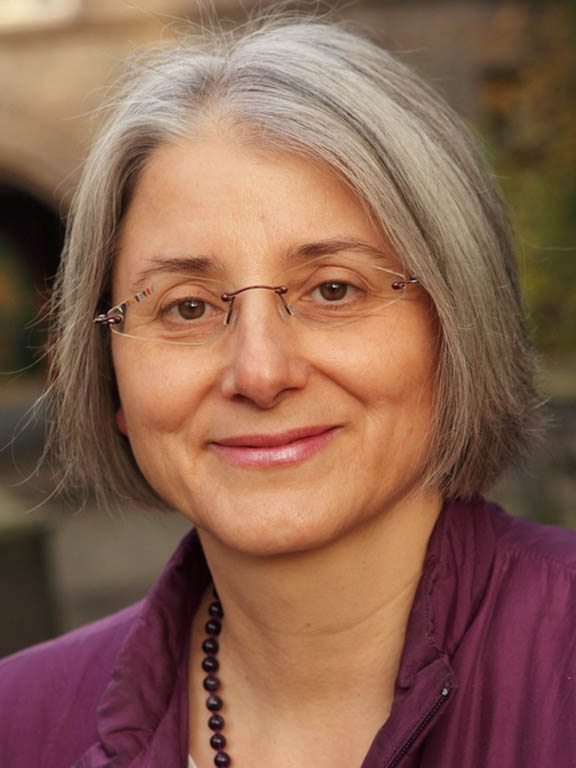
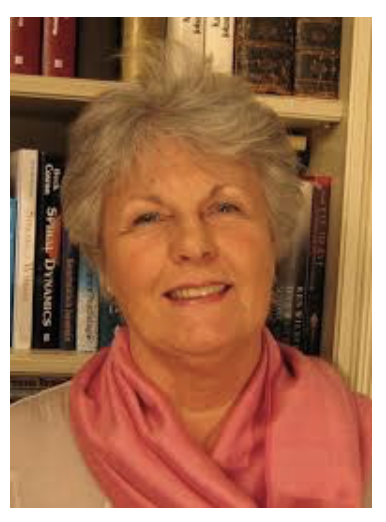
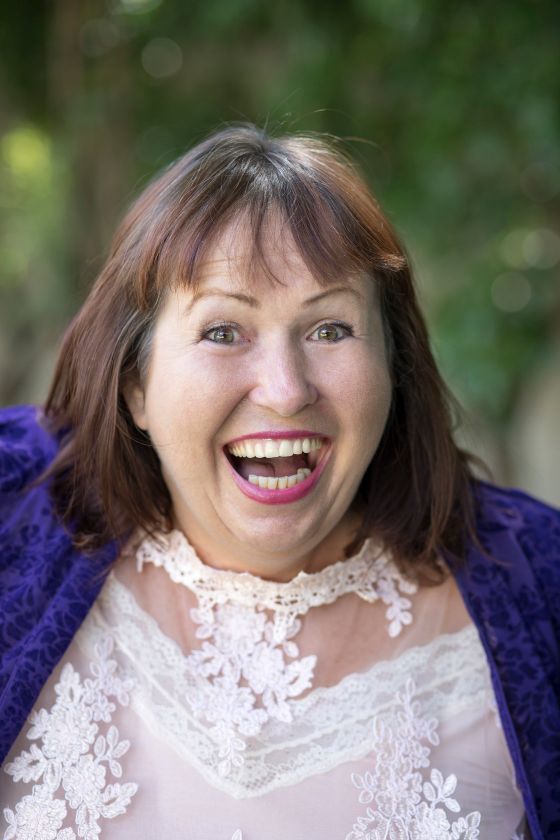
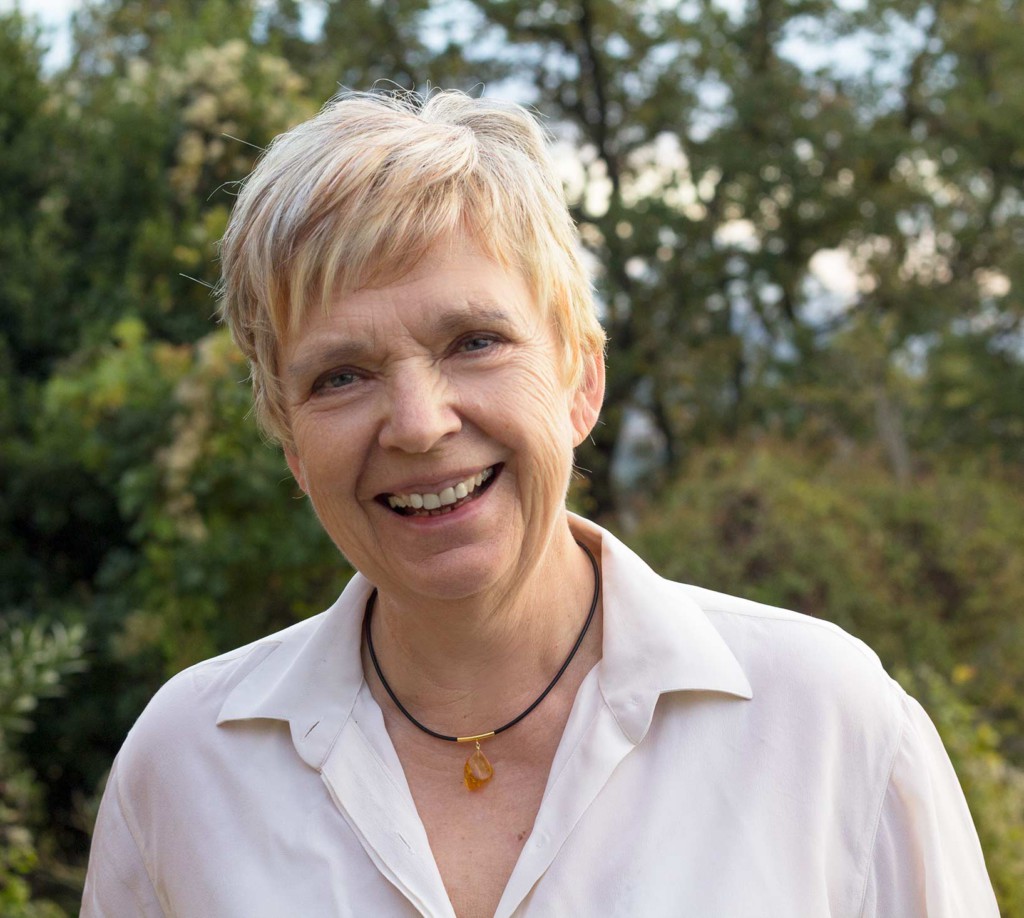
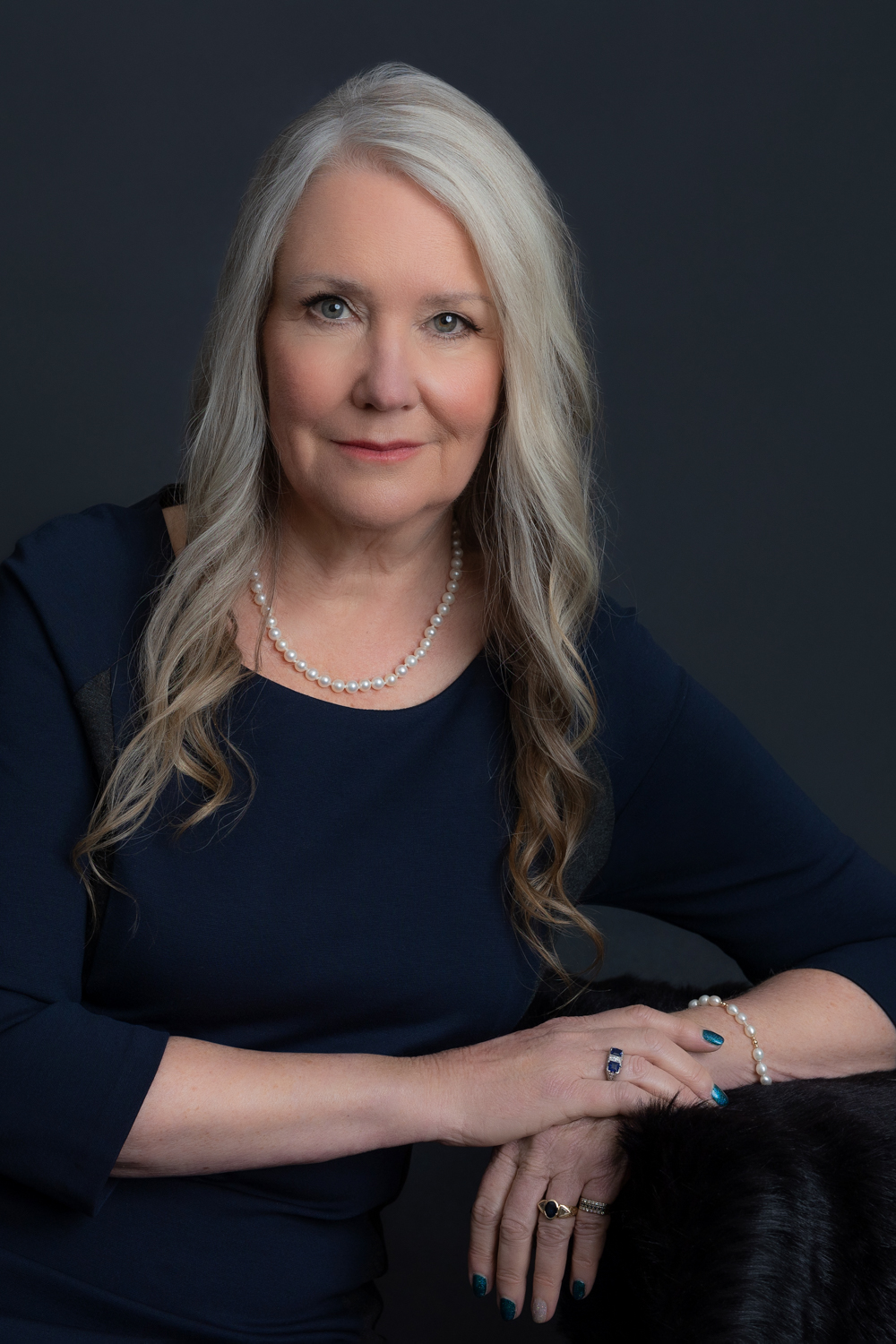
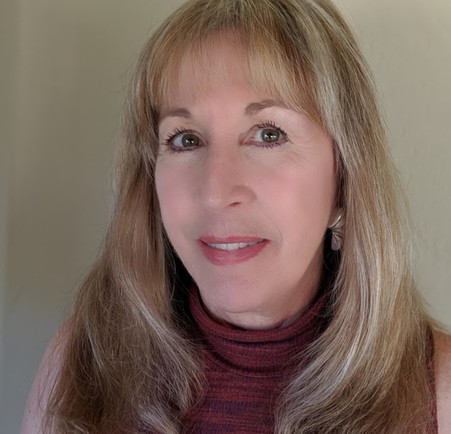
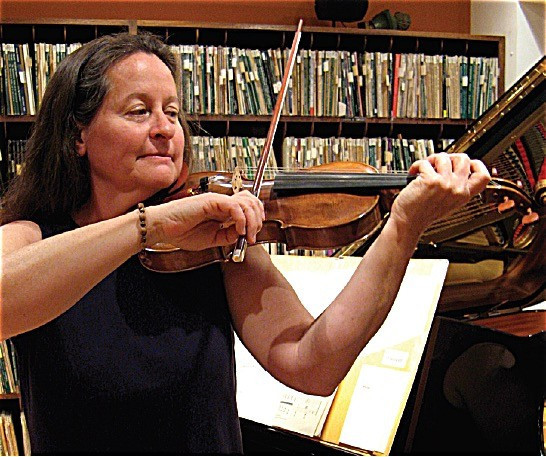
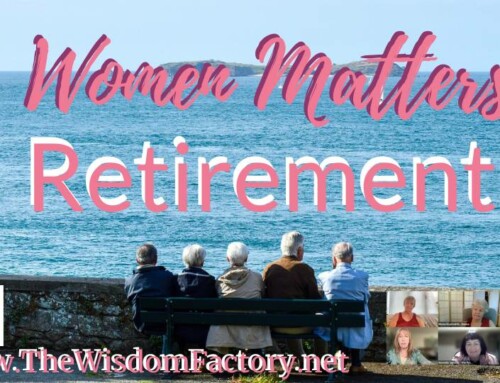




Leave A Comment